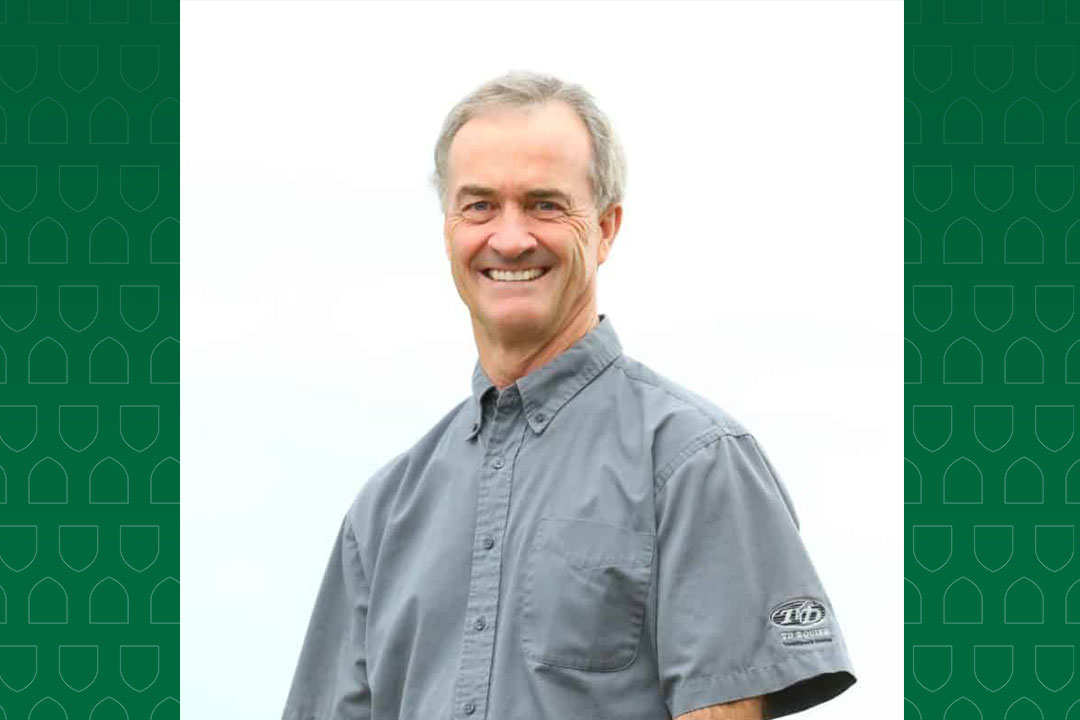
Canadian Veterinary Influencers: Dr. Daniel French
This respected veterinarian has been caring for the resident horses and visiting equine athletes at Spruce Meadow for over three decades.
By Horse SportBorn and raised in Calgary, Dan French (DVM'83, MVSC'88) competed on the show jumping circuit for 10 years prior to pursuing a career as a veterinarian. He graduated from the Western College of Veterinary Medicine in 1983, interned at Littleton Equine Medical Center in Colorado, and completed a surgical residency back at WCVM. Back in Calgary, he practiced at Okotoks Animal Clinic for 25 years before establishing TD Equine Veterinary Group in 2013 with Dr. Suzon Schaal and Dr. Candice Crosby.
Dr. French has been the official FEI Treating Veterinarian for the world’s top athletes at Spruce Meadows for the past 33 years and is board certified in both equine surgery and equine sports medicine and rehabilitation. He also enjoys mentoring and teaching at UCVM as a clinical instructor. When time allows, which is “not as much as I’d like to,” he rides at his family’s stable, Teradan Farms. Dr. French was interviewed by Horse Sport.
What is the most common injury you see in horses in your practice?
With the nature of the sport, we see a lot more catastrophic injuries in the five-star horses: tendon breakdowns, the occasional fracture dislocation. At the lower levels, we will see minor variations of that; tendon ligament strains are probably the most common competition-related injury, whether it’s superficial flexors or suspensory apparatus. Of course, the other side of it is just wear and tear and we try and keep the horses comfortable and performing at the highest levels.
What is your best advice to the amateur horse owner to help a horse stay sound and healthy?
It is hard when people have busy schedules and the challenge is the combination of fitness and an understanding of the importance of nutrition and maintaining their horse’s proper weight. There are so many different products they can choose from, and there is the desire to give your companion animal ‒ dogs, cats and horses ‒ a treat here and there and make sure they have all the latest supplements. We have such quality hay and grain products in Canada, particularly Western Canada, but is the nutrition content for the level of exercise they’re getting appropriate?
The unfit animal that carries more weight than necessary is harder to get in shape and it is harder to prevent injuries. People think ‘he needs more grain because I need him to to have more energy.’ It’s counterproductive; the horses don’t need more energy, and so riders have to tire them out so that they can be suitable hunters, for example. The professionals with the higher-performing athletes use a little more aggressive management. They have the resources, a whole support group, that gets those horses out, walked, and ridden.
We’ll also run into seasonal problems with our lush pastures and then [horse owners] don’t modify the grain and all of a sudden the calorie levels have increased. That’s a key area of the industry that has to be monitored, because like anyone, once the weight’s on, it’s not so easy to get it off.
What is the newest science helping horses remain active longer?
The biologics, the natural joint tendon interventions using process serum samples, autologous serum, that’s probably as exciting as anything out there. It’s relatively expensive, but as far as avoiding some of the chronic effects of steroids, I think a lot of people are quite excited. Probably through my own history is the improvement of advanced imaging. We’ve come so far in understanding more of what’s going on through high-quality ultrasound, the new digital X rays and MRI units give us more information. We certainly get a lot more information to share with clients and help them understand what we’re facing. It is nice to have the diagnostic capabilities to pick up things that are maybe more subtle, or in earlier stages, in the hopes of giving the horse the benefit of time with an earlier diagnosis.
Instead of going back to the clinic, now you can do pretty good job on the farms, where the horses are comfortable, where they present, in a relaxed environment.
Read the full interview at https://horsesport.com

